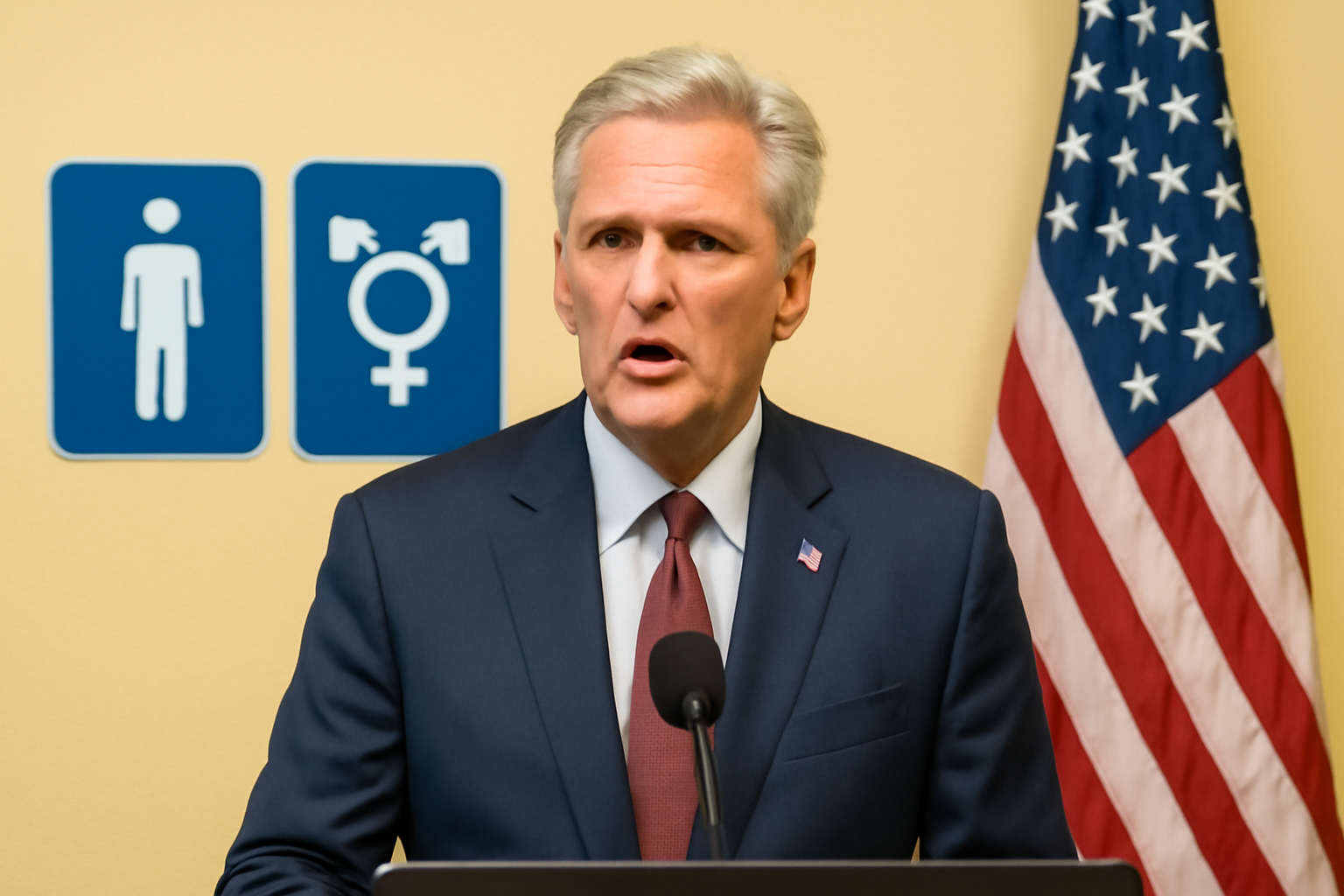
Introduction
In a move that has sparked significant debate and concern among LGBTQ+ advocacy groups, the U.S. House of Representatives has implemented a controversial policy that restricts bathroom access for transgender individuals within its facilities. This decision, spearheaded by the recently appointed House Speaker, has been described by some as a step backwards for transgender rights and equality.
Background
The issue of bathroom access for transgender individuals has been a contentious topic in American politics for several years. Advocates for transgender rights argue that individuals should have the right to use the facilities that correspond with their gender identity, while opponents often cite privacy and safety concerns. This latest policy decision represents a significant development in the ongoing discourse surrounding transgender rights in the United States.
The New Policy
The new policy, quietly enacted within the House of Representatives, mandates that individuals must use the bathroom that aligns with the sex assigned to them at birth, rather than their gender identity. This measure has been met with swift and vocal opposition from LGBTQ+ groups, who argue that it is discriminatory and harmful to transgender individuals.
Reactions and Impact
Reactions to the policy have been polarized. Advocates for the policy claim it is necessary to maintain privacy and safety in public facilities. However, critics argue that such policies foster an environment of exclusion and discrimination against transgender individuals, who already face significant challenges and biases in their daily lives.
Many LGBTQ+ advocacy organizations have condemned the policy, stating that it not only disregards the rights and identities of transgender individuals but also sets a dangerous precedent for similar policies to be enacted elsewhere. They point to studies and expert opinions that indicate that transgender people are more at risk of harassment and violence in public spaces when restrictive bathroom policies are in place.
Legal and Social Implications
There are also potential legal implications associated with the policy. Civil rights groups are currently exploring possible legal challenges, arguing that the policy may violate federal anti-discrimination laws. The outcome of any legal actions could have far-reaching consequences for similar policies across the country.
Beyond legal challenges, the social implications of the policy are also significant. For transgender individuals working within or visiting the House, the policy can create an unwelcoming and hostile environment, impacting their ability to participate fully and comfortably in civic life.
LGBTQ+ Community Response
In response to the policy, LGBTQ+ community leaders and allies have organized protests and campaigns to raise awareness and advocate for change. These efforts aim to highlight the importance of inclusivity and respect for all individuals, regardless of gender identity.
Supporters of transgender rights are encouraged to contact their representatives and voice their opposition to the policy. Additionally, many are calling for increased education and awareness on issues of gender identity and the challenges faced by transgender people.
Conclusion
As the debate over transgender rights continues to unfold, this recent policy decision by the U.S. House of Representatives serves as a reminder of the ongoing struggle for equality and acceptance. While the policy's future remains uncertain, its introduction has undoubtedly reignited conversations about the necessity of protecting the rights of all individuals, regardless of gender identity, within public and governmental spaces.
The LGBTQ+ community and its allies remain steadfast in their commitment to advocating for policies that promote inclusivity, understanding, and respect for all. The outcome of this controversy may well shape the future of transgender rights and influence the broader movement for LGBTQ+ equality in the United States.
Related Posts
Triumphant Trans Woman Wins Legal Battle and Inspires Others to Stand Up for Their Rights
Breaking New Ground: A Landmark Victory for Transgender Rights A decade-long legal battle for transgender rights has culminated in a groundbreaking victory. Diana Portillo, a transgender woman, has been awarded nearly $1 million in a historic settlement after enduring years of workplace discrimination and humiliation. Her courageous fight is not just a personal triumph; it sets a precedent for ot [...]
Pride Month in Latin America: Protests and Demands for Equality
**Celebrating Pride and advocating LGBTQ+ rights in Latin America** Pride Month in Latin America was a lively mix where celebration met activism. Communities united, not just throwing a party but making a stand—demanding equality and pushing governments toward better protection and rights recognition. Throughout Latin America, pride events erupted in marches and cultural displays, each with a c [...]
Transgender Erasure Actions Implemented by National Park Service
```html Trump administration's impact on national park service and transgender recognition The Trump administration made notable moves in undermining transgender representation, which included directing agencies like National Park Service not include "T" and "Q" when they refered “LGBTQ” in any official communication. This move seems part a broader plan by this administration aimed at reducin [...]